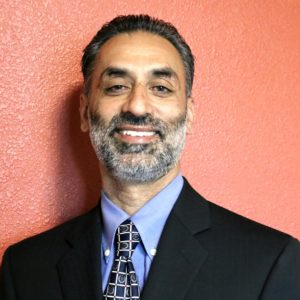After a lengthy legal battle costing more than $3 million in fees, Santa Clara is appealing a court decision forcing district elections after it was sued for allegedly violating the California Voting Rights Act, according to the plaintiffs’ attorneys.
City officials are appealing despite previous unsuccessful efforts from other cities in similar California Voting Rights Act cases.
“The city is appealing because the trial court decision was a mistake,” said city attorney Brian Doyle, adding that people in Santa Clara do not engage in racially polarized voting patterns.
“I think it’s not a wise tactic,” said Richard Konda from Asian Law Alliance, a nonprofit that’s part of the prosecuting team. “It’s up to the City Council and the mayor to do what’s best, but if they lose on appeal, in addition to the money that’s been ordered, there would be additional attorney fees. The math doesn’t make sense… the politics doesn’t make sense.”
In addition to the $3 million owed to the plaintiffs’ legal team, the city owes more than $750,000 in fees to its own legal team, and at least $170,000 in miscellaneous fees. Attorneys representing the city have claimed that the fees are “inflated” and excessant, however Superior Court Judge Thomas Kuhnle deemed them appropriate.
“I don’t live in the city of Santa Clara, but if I did, I would be pretty upset. They must believe that they have a legal argument there. I don’t see a legal argument,” Konda added. “The thing that is most perplexing is that they’re risking taxpayer dollars on this. I don’t see how their arguments are going to be reasonable in the appellate court either. Where is the direction of this City Council? It just doesn’t make much sense.”
The ruling from Judge Kuhnle follows a trend seen in other California cities such as Palmdale, Poway and Santa Monica, which also were sued for allegedly violating the voting rights law. After losing the case, the city of Santa Clara was ordered to administer a district-based election in Nov. 2018.
The string of legal battles has sparked contentious debate on the merits of an at-large voting system versus district elections.
Before the lawsuit, the city held at-large elections, where one lawmaker is elected to represent the entire city. Konda and other advocates say that voting system disenfranchises minority voters and prevents them being represented through racialized voting patterns. A district election, they argued, results in more diverse representation.


Councilmember Raj Chahal, the first Indian American elected to office after Santa Clara began to administer district elections last fall, was defeated in 2016 when he ran in a city-wide election. According to Chahal, running in a smaller district “helped in multiple ways” and gives minorities like him the “encouragement… to be part of the election system.”
“I ran my campaign as a grassroots campaign, and with a smaller district, I was able to appeal to almost 80 percent of the district,” he said. “Even on the fundraising part, it really helped me out… if I would have been in a city-wide election I would have not been able to compete with the money against me. But being in a smaller district, I was able to get on a level playing field.”
But some members of the Santa Clara City Council disagree with Chahal.
“Santa Clara has long been involved in trying to bring about some changes,” said Councilmember Teresa O’Neill, who believes district-wide elections pose several challenges.
As an advocate of ranked-choice voting, O’Neill said some residents expressed concern that their voices are being “diminished” with district elections because they only vote for one lawmaker — they used to be able to vote for six. O’Neill added that some residents are fearful that officials will focus on just one neighborhood, instead of acting on the interests of the entire city.
“I want people to be thinking about what is good for the entire city,” O’Neill said. “Already, I hear residents say that’s in ‘so and so’s district.’ But it’s an experiment, we’ll see.”
Contact Nadia Lopez at [email protected] or follow @n_llopez on Twitter.



Leave a Reply
You must be logged in to post a comment.